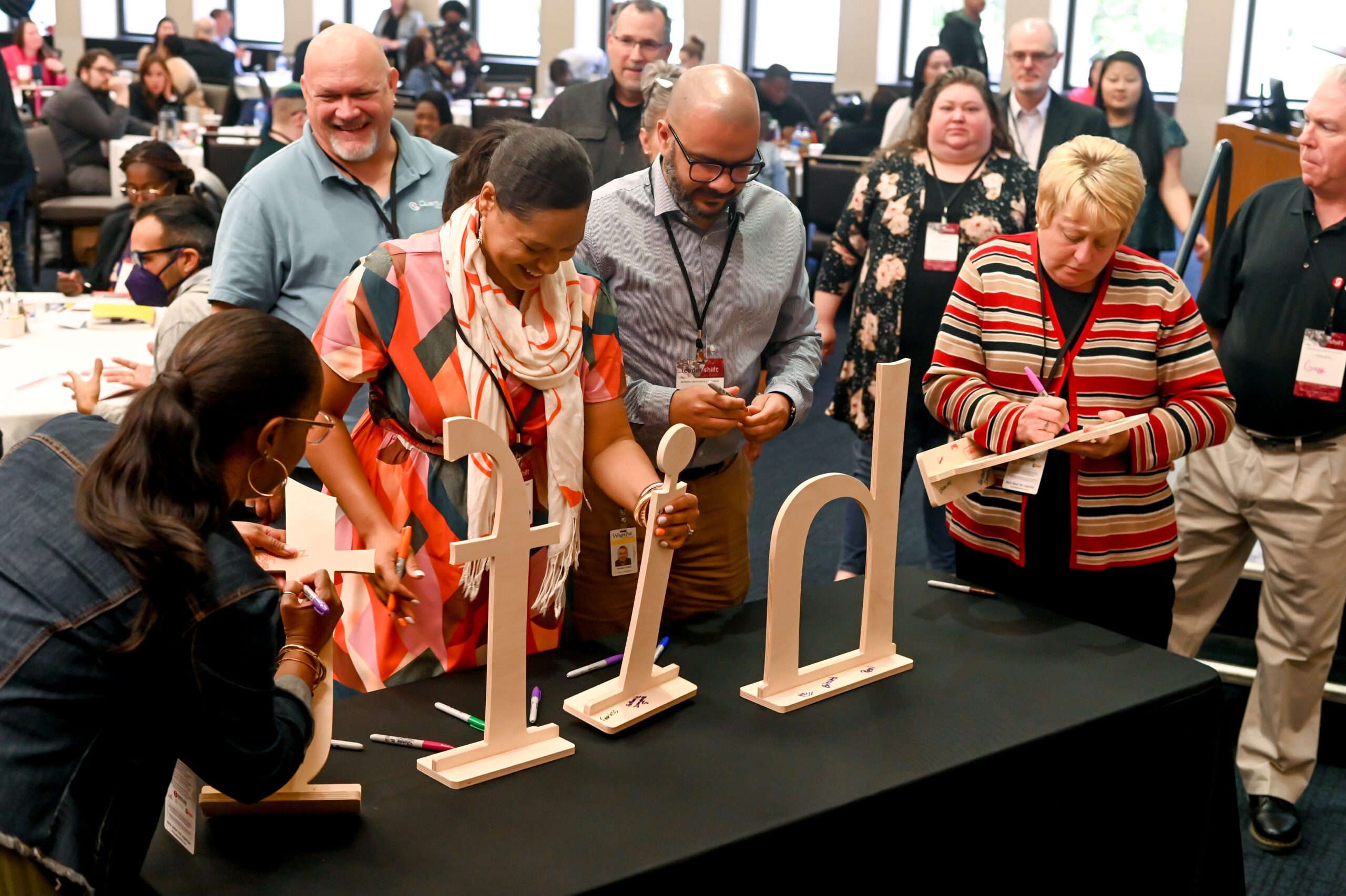Often, when I’m speaking with business leaders, I hear the phrase “culture fit” as the conversation starts to revolve around recruitment and retention. And, as recruitment and retention are increasingly difficult and expensive pursuits for the business community (with costs to replace an employee ranging from 16% of their annual salary, for relatively low-paying jobs, to upwards of 200% for leadership roles 1 2 3), it’s always that the conversation shifts there.
And, I want to establish up front, I believe the intent in “culture fit” thinking is good. Most leaders are thinking about making their existing teams, and their new hires, happy, and that simply works better/easier when there’s culture “fit.” And, that desire is fine.
The problem, though, starts becoming obvious as we start asking questions around what fit looks like, and about how we define culture. Hiring an additional team member that is as close a carbon copy of an existing team member as possible may be a short term win, as it relates to smooth on-boarding, but it may be a real long-term loss as you’ve failed to bring in new perspectives, world-views, understandings, value systems, problem-solving ideologies, personalities, cultural expressions, linguistic richness, and the list could go on and on.
Without meaning to, I think, what many leaders and hiring managers are saying is, “I want more me’s here.” We trust those that look like us, and that goes a long way into who gets an interview, and who gets through the interview process. And, at the end of the day, maybe we’ve reproduced a mini-me, but we may have lost a significant opportunity to get better.
This is tribalism, which term has gone through a recent resurgence a la the “find your tribe” movement. And, which I want to say, I think is awesome, when we protect ourselves from implicitly connecting our “tribe” with those we think are most like us. And, the reality is, that’s what we most often do (1 2 3). We are geographically and socially encouraged to connect with those “like us,” and in terms of how we connect, our socioeconomic levels generally predict that.
So, we are, generally speaking, operating in silos of ethnic, cultural, linguistic, socioeconomic, and ability similarities. We just are.
If we then pull from that community to form our tribe, and subsequently recruit and promote from that tribe, we are only drawing in like resources and parallel thinking.
In this case, “culture fit” becomes code for “like us enough.” And, since the dominant corporate culture is, statistically, some form of white [male] culture, those that fall outside of that demographic must seek to conform their behavior/language/thinking/etc to match the tribe which controls employment.
This is tribalism gone bad. And, that kind of conforming, that behavior policing (which is imposed from outside and inside under-represented groups in corporate America), is a tragic loss for everyone.
Hear that again. When we seek to “normalize” corporate culture by asking all applicants to be cultural “fits,” when we ask historically muted populations to “be like us” when they show up at work, when we assume that “professionalism” means the same thing to all within the workforce, we lose.
We lose the “war” for “diverse talent.”
We lose the opportunity to create an inclusive environment that retains untapped genius and unicorn brilliance.
We lose the chance to become better leaders, better organizations, better community stakeholders.
We lose the ability to accurately reflect the cities and neighborhoods we serve.
We lose potential innovations and inventions.
We lose legitimacy in a globalized economy, and credibility in our local one.
We lose. And that’s a lot of losing.
So, what does “winning” look like?
Many, I’m sure, are familiar with the “culture add” ideology. Instead of implying applicants and employees need to “fit in” to who they are, “culture add” companies invite applicants and employees to help them (the company) extend who they could be. That’s a big difference.
This is where inclusion happens. My working definition of inclusion revolves around it being a strategic set of policies and behaviors that includes all voices and perspectives, and that is housed in corporate cultures that recognize and reward those behaviors.
Winning means incorporating enough diversity of thought, perspective, history, worldview, and lived experience that the challenges your company is working to solve are getting approached from a deeply-appointed toolbox.
Winning means there’s a sense of authenticity around the buzz phrase of “bringing your whole self to work,” and an openness to what that might mean.
Winning means there’s a constant expectation around contributions, about voices and votes mattering, about each employee being an actual value-add to the way the company works.
Winning means not spending the bulk of your “talent” budget on recruiting to fill constantly-turning-over positions, but on development and growth opportunities for an employee group that believes their presence matters, and are serious about leveling up that presence.
Wining means healthy culture, an engaged workforce, a diverse and advancing employee base, and a leadership team that holds itself accountable to these realities.
So, the practical question becomes how.
How do we start shifting from a “culture-fit” to a “culture-add” mentality?
How do we empower leaders to take charge of this movement and admit they’re still in-process in their own learning?
How do we understand where we are now, without inciting a barrage of “we’re not doing enough” survey results?
How do start turning this ship, and letting people know we’re doing it, without pretending like we’re done?
For most, this means bringing in someone who has both the subject matter firmly in grasp, and the objectivity to see through the we’ve-always-done-it-this-way haze that sometimes clouds the vision of those internal to the organization. This is where a diversity/inclusion/equity/culture consultant can add real, demonstrable value to your company. This is where I come in.
Companies working with me can expect:
- active and empathetic listening that builds trust up and down the organization’s structure
- pointed and poignant questions that help identify and unfold challenge areas
- creative and compelling exercises that engage each participant in corporate cultural ownership
- disarming content that reframes the discussion in ways that work for and serve everyone
- actionable next steps that begin shifting you away from “fit” and toward embracing “add”
- an atmosphere of warmth and non-judgment, and a clear invitation to become better
Behavior always follows belief. Stop micro-adjusting behavioral policies in your workplace, and start addressing the deep cultural atrophy that’s created systems of disengagement and distrust. Reach out today and begin the necessary work of culture change.



